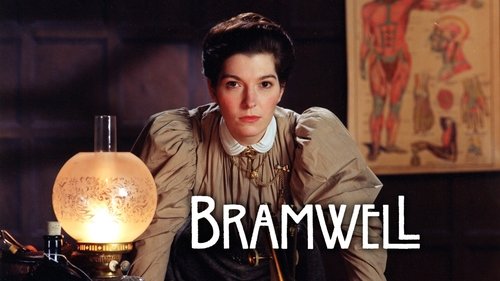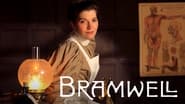Cubussoli
Very very predictable, including the post credit scene !!!
Lovesusti
The Worst Film Ever
Sexyloutak
Absolutely the worst movie.
AshUnow
This is a small, humorous movie in some ways, but it has a huge heart. What a nice experience.
pdhutch
*** Warning --- spoilers ahead!!****This is my first review, not only on IMDb, but on any site of a TV show. But I had so many thoughts about this that I had to get them out and say something. I discovered this show a few weeks ago on Britbox and for the most part, am so glad that I did! I'm going to sound like so many reviewers on here. Seasons 1-3 were just wonderful. It was delightful to watch them. I actually looked forward to coming home and watching an episode each night, as they were both relaxing but also challenged some of your thinking. What I enjoyed so much about these three seasons is that none of these characters are perfect -- but in essence, they are good. This is very hard to do with TV shows, in my opinion. Dr. Bramwell is a generally well-meaning person who truly wants to help people, but can also be snobbish, judgmental and even unkind. That being said, you can sympathize with where she is in life and what she hopes to accomplish. It was awesome seeing a strong, smart, independent woman doctor here. She made mistakes --- sometimes bad ones --- but for me, that made her character even more relatable and human. The characters on this show are complex and go far beyond being Victorian clichés. The end of season three was for me, the loveliest part of the show. You didn't know what might happen next, but it was handled in such a great way. As other reviewers have said, it's my opinion that the show should have ended there. And then....there was season 4. I just got finished watching and I'm going back and forth between disappointed, angry and kind of sad. I don't really invest that much time or emotion into TV shows, but I enjoyed this one, and to see it come crashing down like that was hugely disappointing. I understand, I think, what the writers might have been trying to do and I appreciate that --- Victorian London could be an incredibly difficult and awful place for some, and Dr. Bramwell's fierce determination to find Dora is commendable. My problem is the complete and utter change of tone, style and intent on the part of the characters. There's nothing wrong with keeping a certain amount of consistency with TV characters. Shows make us think, but they can also provide a sense of comfort. To make such drastic changes was baffling. If the writers had decided from Season 1 to film the show this way, with this different tone, I would have understood. I may not have liked it as much, but at least I would have understood what kind of mood they were going for. Dr. Bramwell, though her cause to find Dora might have been worthy, quite frankly becomes insufferable, and I hate what they did with Dr. Marsham. I felt like I was watching an entirely different show. I think, like others, I'm just going to pretend I didn't see season 4 and imagine that the show ends in season 3. It will leave me with much happier memories of this show!
ScienceIsCool
I started watching this show (Netflix instant play) as background noise while I worked on some projects, but soon fell in love. I am particularly drawn to medical dramas, and this show was no exception. I love the relationship between the doctors Bramwell (Elanor and her father) and the hopefully somewhat-accurate depiction of the struggles a woman doctor might face in those times. I also love the depth of the more minor characters (Dr. Marsham, nurse Carr, Kate) and the witty humor and sarcasm employed.I was grossly disappointed by the fourth mini-season of the show, however. I was warned not to watch it, by a Netflix review, but gave into temptation. Now I repeat a similar warning: if you admire Elanor's strength and character (and especially if you are fond of Dr. Marsham) don't watch Season 4. I am now trying to trick myself into remembering the series as it ended in season 3 as I was so disgusted with what went on in Season 4. The creepy music used in the intro, and throughout the fourth season should have given me a head's up. Also, Sidnney was replaced with a weenie of a character that badly needed a shave, and Dr. Robert Bramwell didn't make an appearance. Perhaps if he had, he would have knocked some sense into his daughter.
debleenab-79-975804
No, she did not go off the rails. There is a reason the title puns on the phrase 'loose women.' Anyone with even a glancing acquaintance of Victorian England and the condition of women at the time would understand the psychological pressure of disenfranchisement that Bramwell faces. The cinematic depiction of the last season mirrored the exact horror and psychic fragmentation a woman like Bramwell (who has achieved something on the strength of reason and ability in a man's world) experiences when she realizes that Woman in her time is still the victim of her sex, that she will continue to be victimized and penalized as such (through prostitution and moral judgment), and that even a woman of birth and money like herself can be brought low by the circumstance of her sex (in her case, by unwed pregnancy).She refers to 3 women who matter, who needs to be saved—herself/her unborn child, Dora and another one. They are paralleled by the three men in the last episode—the soldier, the doctor, and the pious man, who should be the representative members of society helping the unfortunates, and who all know of the horrors but are unmoved by them.In the scenes leading up to her confrontation with the benefactor-to-be, she lashes out at the indifference and unfeeling reactions of every one who punishes and scolds women who fall foul of the sexual line but who will not act to prevent and protect women and children, even after they know the dangers and the persons concerned. Bramwell is in effect railing against social utilitarianism where the happiness of the masses is arbitrated by a self-appointed few (the doctors, priests, legal and juridical institutions deciding for the very women their society uses and abuses).The Victorian notion of duty marks the series of confrontations, when Bramwell is told off for taking 25 pounds to 'buy' the child prostitute. She is castigated and judged for being delinquent in keeping hours and money, even though her motivations were far higher than anyone around her. When asked why she did not try to rescue the child through the police, or the Salvation Army, or other social institutions, she says she does not know, but we do—when the fine upstanding men around her know and do little or nothing, can she depend upon them to take matters seriously and do right? Bramwell, through her actions, is trying to get people to recognize their true social duty—to do whatever possible to prevent vice and protect the possibility of innocence. When the child is found dead, it is the death of her innocence too.The nuns at the convent where Bramwell seeks a possible anonymous confinement supposedly do good work but they want to teach her humility. They are not accustomed to seeing women asserting their will in a man's world. Even as the brides of Christ are chaste, so must ordinary eves be, and their God is interpreted in man's image, harsh and exacting. Is it any surprise that Bramwell says that in the absence of god, she is sure He will understand if she steps in and does what she can to protect one child, i.e., in the manifest absence of the compassion that is divine, ordinary ungodly people must do what they can, and if there is indeed a benevolent God, He won't mind the interference of people such as Bramwell. On this point, her actions –judged as impulsive, thoughtless, etc.—are in stark contrast to the measured mercy of the priest.The dialog with her colleague and former fiancé who says she has brought it upon herself is very Victorian, and indeed very American (to attribute absolute responsibility for such a crime to the woman alone). It is interesting to note that not one of the people close to her intercedes with Major Quarrie who has made her pregnant on her behalf, until she berates him in the street. And then they punish her for her condition by dismissing her, showing so little concern for the future welfare and earning capacity for the two. Then and now, shame overrides self-reliance.The point, I think is to show the horror that lay beneath the cover of Victorian society. The men used and abused it more, and were inured to it. Bramwell, being judged for being pregnant, feels empathetic about the plight of children, she feels for the powerless children because she is fighting to retain power as a woman in a man's world, and is failing, just as the child struggled to remain at the hospital when Bramwell insisted that she go. When the child dies, Bramwell feels a sense of urgent personal responsibility, and struggles to convey this to the men who are more 'objective' and detached. She had been an extraordinary woman in a man's world, now she was forced to be a more ordinary woman in a man's world. The last episode shows her as 'breaking up' also because it is a representation of her through society's eyes—a woman who erred, as a woman, when all this time she had tried to be a less emotional creature—a woman who has finally fallen and broken. Society could forgive a woman for being a doctor like she was, for that transgression, but it would not forgive what it saw a hubris and overreaching. Bramwell could not be allowed to be both woman and man (be sexual, sexually liberal and eager, as men were allowed to be, for example, Dr. Marsham, who was never castigated for frequenting brothels except by Bramwell and even then he saw no merit in her accusations; did he take revenge for her disclosure in the street by helping her get dismissed?), and bear a child. The nun's words were telling — she must be made to learn humility through being made 'no different' from the other unfortunate women who came to the convent for their confinement.
WilliamCKH
turn of the century London....a thrift infirmary treating patients with the diseases and scourges of the day....graphic depictions of 19th century medical practices, including operations, amputations, etc... a beautiful lady doctor with a heart of gold and a stubborn streak...YES PLEASE....MAY I HAVE SOME MORE! I'd jump off a ladder if there was a chance I'd get treatment from Jemma Redgrave. I can look at her all day.I've got to stop watching shows like this. It only makes it harder in real life...finding real women to compare to the likes of Eleanor Bramwell





